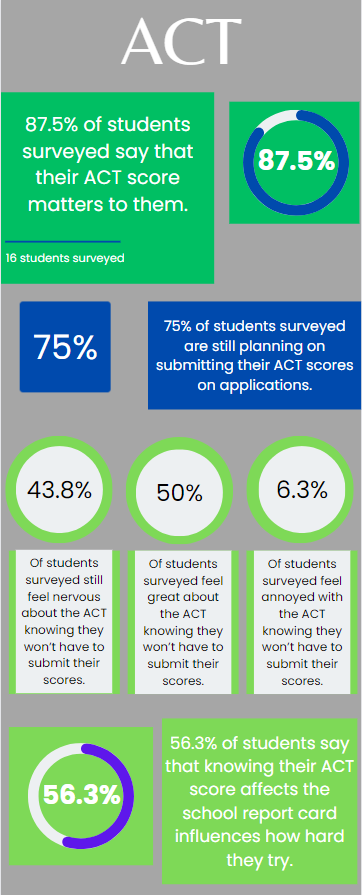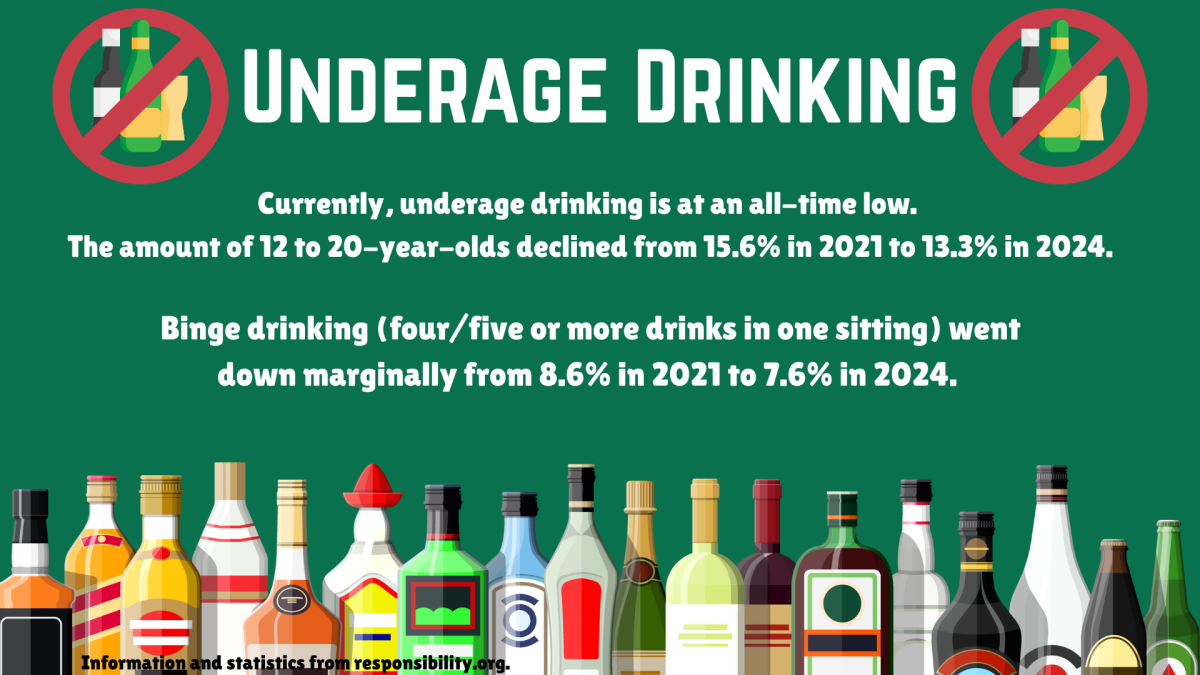The class of ‘25, who took the ACT on March 13, will be the last class that is not required to submit their ACT score on college applications due to the accommodations offered during COVID. Many are hoping that this will continue because they say the ACT is not a great portrayal of character.
“I think [the ACT] is just not a great representation of the student. It’s just one number, one test, the score of one day, one event,” guidance counselor Ann Ragus said.
There are many students who agree with Ragus, including junior Andrew Rozek.
“I don’t think that the ACT is a fair test of people’s intelligence. It really only tests two subject areas (language and math) and doesn’t account for anything else,” Rozek said. “It can give a general on how good someone is at language or math, but it really is a better test of how good you are at taking tests.”
Even though students are not required to submit their ACT score on applications, many still plan to.
“I will most likely submit my ACT score if I receive the score I’m hoping for,” Rozek said.
Pre-COVID, students were required to submit their scores on college applications as part of the admissions process. The ACT often causes anxiety for juniors taking it, and is introduced as one of the most important tests in a student’s career.
“The ACT was always designed to be a college entry-level test and knowing that not all students are college bound, I think it’s difficult to measure us with such weight on a test that has little meaning even for our college bound students anymore,” Principal Bryant Bednarek said.
Another area where the ACT scores factor is the school report card. The ACT score affects how much funding the school gets. A flaw with this system can present itself if the students who take the ACT feel the test does not matter and do not try their best.
“It’s not needed in order to get into college anymore, and I’m more than just a score,” junior Tatym Haedt said.
Although some students feel the test does not matter, other students do and strive for a high score.
“My ACT score matters to me because I greatly value my academics, and the ACT is another test that tests my academic ability,” Rozek said.
Knowing this, the school has tried to implement different programs to help students increase their score, including an ACT boot camp.
“The best thing we can do for our students to prepare for the ACT test is what happens in a classroom every single day in our school. Are we teaching to the standards? Are we asking our students to read and write at the level the ACT measures? Are we providing them with test questions that are in a similar format?” Bednarek said. “Those are things we can do every day in our classrooms. The boot camp was really about familiarity, not necessarily to learn something new. It was just more about comfort and preparedness.”
The ACT does not account for all types of intelligence; it is a test of core academic skills and does not account for different skill sets students acquire through electives.
“We have students on different tracks here at Berlin High School and whatever that measure is, there needs to be data points from all of those different lenses,” Bednarek said.







